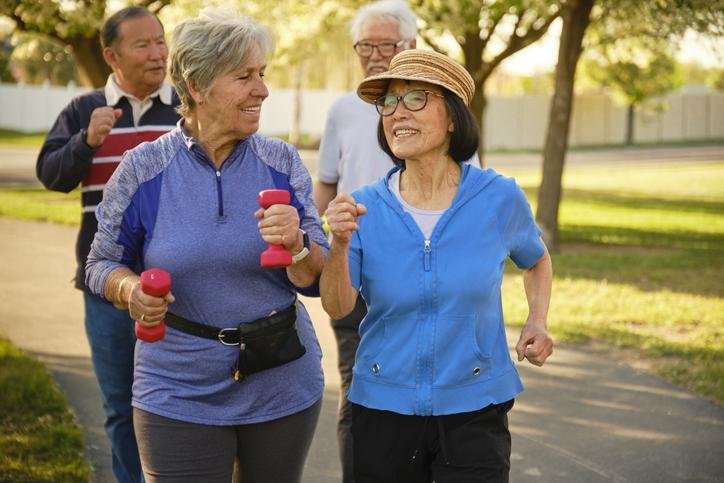Aging well goes beyond managing health—it’s about staying connected, active, and fulfilled as we grow older. For many seniors, this stage of life opens up a chance to build new friendships, discover new interests, and savour the freedom of leaving behind the stresses of daily responsibilities.
Senior living communities are designed to support this phase by prioritizing social engagement, offering personalized care, and ensuring a safe environment where residents can flourish. These communities provide a lifestyle that balances independence with the comforts of knowing help is available when needed, allowing seniors to continue enjoying life on their terms.
Why Are Social Connections So Vital for Seniors?
A strong social network is key to staying mentally sharp, emotionally balanced, and physically active as we age. Communities like The Manor Village are thoughtfully designed to nurture these connections, offering structured activities and spontaneous gatherings that make it easy for residents to build friendships and stay engaged.
Benefits of Social Engagement in Senior Living Communities:
● Mental Well-being
Engaging with others can significantly reduce loneliness and contribute to better mental health, helping to ward off depression and anxiety. According to the Canadian Mental Health Association (CMHA), social connections are crucial in maintaining mental health as we age.
● Physical Health
Group exercises and daily walks promote socializing and physical activity, improving overall wellness.
● Sense of Belonging
Being part of a community fosters a sense of connection, reduces isolation, and provides a supportive network.
What Types of Support Do Senior Living Communities Offer?
Support services in senior living communities go beyond basic care. By assisting with daily tasks, access to healthcare, and emotional support, these communities allow residents to live independently while getting the help they need to stay well.

Key Support Services Available:
1. Personalized Daily Assistance
From help with dressing and bathing to medication management, trained staff offer support tailored to individual needs, helping residents maintain independence.
2. Health and Wellness Programs
Many communities provide on-site wellness programs, regular health assessments, and preventive care initiatives to keep residents healthy.
3. Diet and Nutrition
Balanced meals are typically available, often prepared by chefs, so residents can enjoy nutritious dining without the effort of cooking.
4. Therapeutic Services
Physical, occupational, and even mental health therapy options are frequently available, making it easy for residents to stay physically and emotionally healthy.
Through these services, senior living communities provide a supportive environment that can adapt to each resident’s unique needs, giving families peace of mind.
How Do Senior Living Communities Prioritize Safety?
Safety in senior living communities is built into their infrastructure and daily routines, offering seniors and their families confidence in a secure, supportive environment.
Essential Safety Features:
- 24-Hour Staff Presence
Around-the-clock staffing means that help is always available, from health emergencies to general assistance.
- Emergency Response Systems
Residents often have access to emergency call buttons or wearable alert devices for quick help if needed.
- Medication Supervision
Trained staff assist with medication schedules, reducing the risk of missed doses or improper use.
- Secure Facilities
Gated entrances, visitor check-ins, and well-lit paths ensure a safe setting for all residents.
By incorporating these safety features, communities provide a stable environment, allowing residents to feel secure in their daily lives.
What Social Activities Can Seniors Enjoy in Community Living?
A major perk of senior living is the variety of activities available to residents. Whether through fitness classes, art sessions, or outdoor excursions, these programs offer residents the chance to socialize, stay active, and engage their interests.
Activities That Enrich Community Life:
- Arts and Creativity
Creative outlets like painting, pottery, or even music sessions help seniors express themselves and discover new interests.
- Fitness Programs
Low-impact classes, such as yoga or tai chi, encourage physical health and offer a social setting for fitness.
- Game and Movie Nights
Trivia, movie screenings, and card games are popular social activities that foster friendly competition and camaraderie.
- Outdoor Activities
Garden clubs, walking groups, and nature outings give residents fresh air and a change of scenery, promoting both mental and physical well-being.
In addition to planned events, spontaneous gatherings in common spaces create opportunities for natural, everyday connections that contribute to a vibrant social atmosphere.
How Do Senior Living Communities Help Families Stay Connected?
While fostering social connections among peers is essential, senior living communities also prioritize family involvement. Many communities make it easy for families to stay connected with their loved ones, offering flexibility for visits and shared activities.
Family-Friendly Features:
- Family Events
Scheduled gatherings, such as holiday parties or themed events, encourage families to enjoy the fun and spend quality time with residents.
- Flexible Visiting Hours
Many communities offer open visiting hours, allowing family members to visit whenever convenient.
- Communication Updates
Regular updates about a resident’s health and well-being give families peace of mind and foster transparency.
These features allow family members to remain active in their loved one’s life while providing support and comfort to residents.
Tips for Choosing the Right Senior Living Community
Finding the right senior living community takes careful consideration. Here are a few tips to help you make the best choice:
Assess Care Needs
Determine the level of assistance your loved one requires, whether it’s minimal daily help or more comprehensive medical care.
Review Available Amenities
List must-haves, like fitness programs, dining options, and recreational activities, to find a community that aligns with your priorities.
Visit Communities in Person
Touring a community can provide valuable insight into the atmosphere, resident engagement, and quality of care.
Ask Key Questions
Inquire about safety measures, healthcare access, and support services to ensure the community meets your family’s expectations.
Researching and visiting communities can help you make an informed decision and choose a place where your loved one can thrive.
Conclusion
Senior living communities offer more than a home; they create a network of support, friendship, and security that enriches the lives of their residents. This environment fosters independence within a support framework for seniors, allowing them to focus on the joys of living in a community that feels like family.










